In 2026, many people wonder: Is it legal to track a phone? The answer depends on where you live and why you do it. Tracking a phone is usually legal if you own the device or have clear consent from the person being tracked, such as your child or an employee using a company phone. However, doing it secretly or without permission can break major privacy laws like GDPR (Europe), CCPA (USA), or PDPA (Singapore). This updated 2026 guide by PhoneTracker247 explains what’s legal, what’s not, and how to stay compliant with global data protection frameworks, so you can monitor devices safely, responsibly, and within the law.
Contents
- 1 1. Introduction: Why Legal Clarity Matters in 2026
- 2 2. Global Overview: Is It Legal to Track a Phone Worldwide
- 3 3. Legal Use Cases: Parental, Employer, and Personal Tracking
- 4 4. Global Privacy Laws and Compliance Frameworks 2026
- 5 5. Real-World Legal Cases and Lessons Learned
- 6 6. Compliance Checklist for Users and Developers
- 7 7. Legal vs Ethical Tracking in 2026
- 8 8. Country-Specific Legal Notes 2026
- 9 9. Best Practices for Developers and Businesses
- 10 FAQs – Is It Legal to Track a Phone (2026 Update)
- 11 Conclusion – The Future of Legal Phone Tracking in 2026
1. Introduction: Why Legal Clarity Matters in 2026
In a world where almost everyone carries a smartphone, the ability to track a device has become both a technological advantage and a legal minefield. Parents track their children for safety. Companies monitor work devices to secure data. Law enforcement uses geolocation to fight crime. Yet for ordinary users and businesses, the real question is often the same: Is it legal to track a phone in 2026 and under what conditions?
Over the past decade, privacy laws have evolved faster than the technology itself. Governments are rewriting digital protection acts, and courts are defining new boundaries between “lawful tracking” and “invasion of privacy.” What used to be a simple act of finding a lost phone now involves complex questions about user consent, data collection, and intent.
Why understanding the law matters
Knowing what’s legal and what’s not is no longer optional. For parents, it ensures the child’s protection doesn’t violate privacy rights. For companies, it shields against employee lawsuits and regulatory fines. For app developers, it’s the foundation of trust and credibility. By understanding the answer to “Is It Legal to Track a Phone”, individuals and organizations can embrace technology responsibly, using location data ethically while staying fully compliant with modern privacy standards.
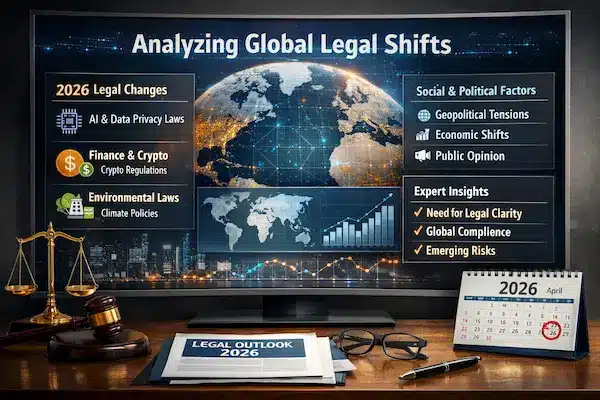
2. Global Overview: Is It Legal to Track a Phone Worldwide
The legality of tracking a phone depends entirely on where you are and why you are tracking it. In some countries, tracking your own or a family member’s phone is perfectly lawful. In others, it’s tightly restricted even if your intentions are harmless. Understanding this global patchwork of laws is the first step toward responsible and compliant use of tracking technology.
Legal status by region (Updated for 2026)
| Region | Legal Status | Primary Law / Regulation | Consent Required | Notes |
|---|---|---|---|---|
| 🇺🇸 United States | ✅ Legal with consent | CCPA, CFAA | Yes | Permitted for parents & employers; consent required |
| 🇪🇺 European Union | ⚠️ Restricted | GDPR | Explicit | Very strict data rules; unlawful tracking fined heavily |
| 🇸🇬 Singapore | ✅ Conditional | PDPA | Written | Legal for business or family use with signed consent |
| 🇮🇳 India | ⚠️ Context-based | IT Act, DPDP Bill 2025 | Yes | Allowed for safety or theft prevention |
| 🇦🇪 United Arab Emirates | 🚫 Illegal without license | Cybercrime Law | Government approval | Private tracking = criminal act |
| 🇦🇺 Australia | ✅ Permitted under notice | Surveillance Devices Act | Written | Legal for parental or corporate tracking |
As of 2026, the answer to “Is it legal to track a phone” is mostly yes — but only with clear, informed consent. Unauthorized tracking, especially when done secretly, is treated as a serious privacy offense across most regions.
Global trend: from freedom to accountability
In the early 2010s, location tracking apps operated in a legal gray zone. By 2026, nearly every nation has moved toward data accountability. Users must now know when, why, and how their data is being used. Even parents and employers, once freely tracking devices, are now required to document consent or provide a privacy notice.
Example scenario
-
Legal: A parent uses PhoneTracker247 to monitor a child under 16 for safety, with clear family consent.
-
Illegal: An individual installs a hidden tracker on a partner’s phone without permission.
The difference is not technology, it’s transparency.
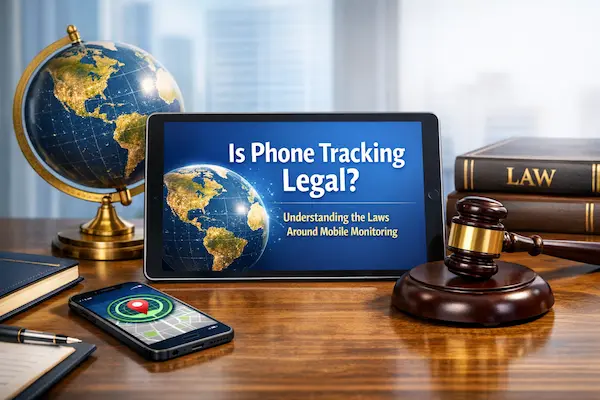
3. Legal Use Cases: Parental, Employer, and Personal Tracking
Not all tracking is created equal. The legality of monitoring depends on who owns the phone, who uses it, and the purpose behind it. Below are the three most common lawful use cases and how to stay compliant in each.
1. Parental Tracking, Protecting Children, Not Invading Privacy
For parents, tracking a child’s phone remains one of the few clearly legal uses worldwide. Laws in the U.S., India, and Singapore recognize a parent’s right to protect minors, provided it’s used for safety, not control. In 2026, modern parental tracking apps like PhoneTracker247 allow parents to monitor location, calls, and online activity ethically, without collecting unnecessary data.
Always inform older children (above 13–14) about monitoring, to maintain trust and comply with “child awareness” clauses under laws like the DPDP Bill (India) and GDPR (EU).
2. Employer Tracking – Legal with Transparency
Businesses often ask, “Is it legal to track employees’ phones?”
Yes, if the devices belong to the company and staff are informed in advance.
Under GDPR and PDPA, companies must issue a written policy describing:
-
What data is collected (location, usage patterns, security logs)
-
Why it’s collected (security, efficiency, asset tracking)
-
How long it’s stored and who can access it
Hidden tracking on employee-owned devices, however, is illegal and unethical. Several European companies were fined in 2024–2025 for using stealth monitoring apps without consent.
3. Personal Device Tracking, Always Legal When You Own It
If the device belongs to you, you have full legal right to track it. This includes lost or stolen phones, tablets, or smartwatches. Most operating systems like Android and iOS have built-in “Find My Device” tools and third-party solutions like PhoneTracker247 add real-time tracking, call history, and security alerts. As long as you’re tracking your own property, it’s lawful in every country.
4. Unlawful Tracking Examples (What to Avoid)
-
Installing hidden tracking software on someone else’s phone
-
Monitoring a partner’s messages or location without permission
-
Selling or sharing private location data to third parties
-
Using phone trackers for harassment, blackmail, or surveillance
These actions violate multiple privacy frameworks including GDPR Article 6 (Lawful Processing) and UAE Federal Law No. 34 (Cybercrime Act) and can lead to severe penalties or imprisonment.
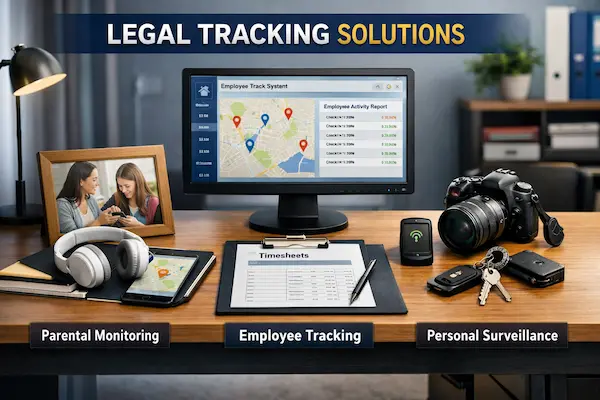
4. Global Privacy Laws and Compliance Frameworks 2026
To understand whether tracking a phone is legal, it’s essential to look at the global privacy laws that define the limits of personal data use. Although each country applies different rules, they all share one common foundation: user consent.
1. The evolution of global digital law
From 2018’s GDPR revolution to the 2025 wave of new data protection acts, global regulations have moved toward transparency and accountability. Governments now expect every digital service, from social media to phone trackers, to prove that users understand and approve the data being collected.
| Region | Core Regulation | Key Requirements | Penalties for Violation |
|---|---|---|---|
| European Union | General Data Protection Regulation (GDPR) | Explicit consent, clear data purpose, deletion rights | Up to €20 million or 4% of global turnover |
| United States | California Consumer Privacy Act (CCPA) | Right to opt out, right to delete, data-use disclosure | $7,500 per violation |
| Singapore | Personal Data Protection Act (PDPA) | Written consent, limited retention, notification duty | Fine up to S$1 million |
| India | Digital Personal Data Protection Bill (DPDP) | Awareness, parental consent for minors, local data storage | Penalty up to ₹20 crore |
| United Arab Emirates | Federal Decree-Law No. 34 (Cybercrime Law) | Tracking without license prohibited, high-security data standards | Up to 5 years imprisonment |
| Australia | Surveillance Devices Act | Notification requirement, corporate transparency | State-level penalties and bans |
These frameworks make it clear that tracking without disclosure or consent is illegal, no matter the technology used. Even apps marketed as “safety tools” must include privacy terms and obtain user approval before activating location features.
2. Compliance as a trust signal
Following these laws is not only about avoiding penalties. It’s also how companies build digital trust.
A compliant phone tracking service must:
-
Ask for consent in a clear, readable format.
-
Allow users to revoke that consent anytime.
-
Encrypt all location and communication data.
-
Log every access to protect against internal misuse.
By 2026, compliance itself has become a competitive advantage. Consumers and regulators increasingly favor apps that respect privacy while still offering transparency and control.
3. Example of ethical compliance
A tracking app that shows parents their child’s location, allows the child to view the same data, and stores it securely for a short period meets most international privacy standards. By contrast, an app that hides its tracking or shares collected data with advertisers would violate multiple laws, regardless of where it operates.
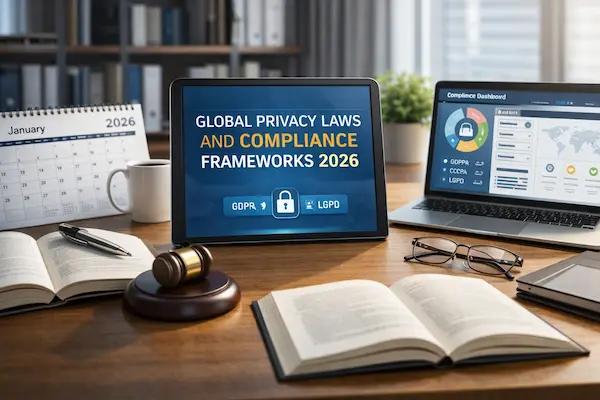
5. Real-World Legal Cases and Lessons Learned
Global courts have dealt with hundreds of phone tracking disputes in recent years. These cases highlight how easily good intentions can turn into legal trouble when privacy boundaries are ignored.
| Case | Country | Issue | Outcome |
|---|---|---|---|
| Doe v. Spyware Inc. (2024) | United States | Hidden partner tracking | $200,000 fine and app ban |
| TechCorp Employee Case (2025) | United Kingdom | Unauthorized workplace tracking | £50,000 company penalty |
| SmartKid App Ban (2025) | European Union | Unclear consent for minors | App removed from EU stores |
| TrackMate Lawsuit (2025) | India | Misuse of employee data | Platform shut down, criminal charges filed |
| GulfTrack Investigation (2025) | UAE | Private surveillance without permit | Jail sentence under Cybercrime Law |
What these cases reveal
-
Hidden tracking equals guilt. Every major privacy law treats secrecy as proof of bad intent.
-
Consent must be documented. Verbal or assumed permission is not enough; regulators demand written or digital proof.
-
Children’s data is protected globally. Any app targeting minors must prove safety purpose and parental oversight.
-
Employers face double scrutiny. Business tracking often triggers labor and privacy investigations simultaneously.

6. Compliance Checklist for Users and Developers
When it comes to phone tracking, the best way to avoid legal risk is to make compliance part of your routine. Whether you are a parent, an employer, or a developer, these simple but critical steps help ensure your tracking activity stays lawful under 2026 privacy standards.
For individual users
-
Track only your own or authorized devices.
You can legally track phones you own or have written consent to monitor. -
Get clear, recorded consent.
Digital permission forms or app-based consent logs are acceptable proof under GDPR and PDPA. -
Be transparent about your purpose.
State why tracking is needed — for safety, management, or recovery. -
Avoid hidden apps.
Any software that conceals its presence is considered surveillance, not security. -
Use reputable tracking solutions.
Platforms like PhoneTracker247 disclose their privacy terms, encryption methods, and retention policies.
For app developers and companies
-
Create a written privacy policy.
List exactly what data you collect, how it’s stored, and how long it’s kept. -
Add an opt-in mechanism.
Users should actively agree before tracking begins; default tracking violates most data laws. -
Encrypt sensitive data.
All location, call, and message logs should be encrypted both in storage and transmission. -
Provide opt-out and deletion options.
Users must be able to stop tracking and delete stored data anytime. -
Keep audit trails.
Maintain secure records showing who accessed the system and when.
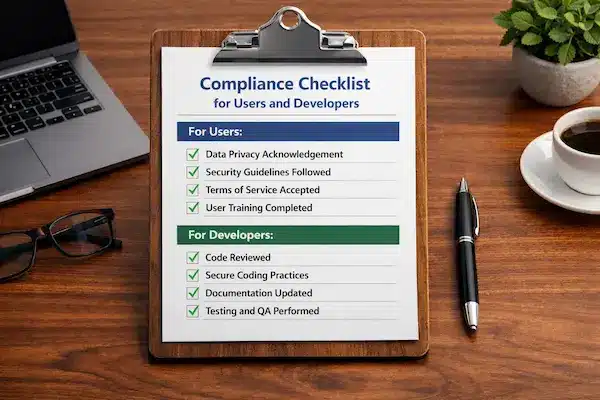
7. Legal vs Ethical Tracking in 2026
Even when tracking is legal, it may still raise ethical concerns. The difference between legal and ethical monitoring often lies in intent, consent, and transparency.
The legal dimension
From a legal perspective, tracking becomes permissible once consent is given or ownership is established. Most privacy laws, including the GDPR and CCPA, are designed to protect people from being tracked without awareness. So if your activity meets those consent and disclosure standards, it’s lawful.
However, legality alone doesn’t make an action ethical. Many users feel uncomfortable when their movements or communications are monitored too closely, even with permission.
The ethical dimension
Ethical tracking is about respecting privacy beyond compliance. It means asking:
-
Is this tracking necessary for safety or just convenience?
-
Have I clearly told the person being tracked how the data will be used?
-
Am I collecting only what’s essential?
An ethical approach also considers emotional transparency. Parents, for example, should talk to their teenagers about why tracking exists, building trust instead of secrecy. Employers should focus on monitoring work-related activity, not private conversations or personal apps.
The human side of tracking
Technology should protect, not control. In 2026, the conversation around “Is it legal to track a phone” is no longer just about compliance — it’s about accountability and respect. Ethical tracking reinforces the idea that privacy and safety can coexist when both sides understand and agree.
Quick Summary Table
When it comes to global phone tracking, laws may look different from one country to another, but the underlying principles remain the same: ownership, consent, and purpose.
| Use Case | Legal Status (2026) | Consent Required | Legal Basis | Practical Example |
|---|---|---|---|---|
| Tracking your own phone | ✅ Legal | No | Personal property rights | Using GPS to locate a lost phone |
| Tracking a child under 18 | ✅ Legal | Yes (parental) | Child Safety & Data Protection Acts | Parents using PhoneTracker247 to monitor minors |
| Tracking an employee (company device) | ✅ Legal | Yes | GDPR, PDPA, Labor Law | Company tracking field staff for logistics |
| Tracking a partner or spouse | 🚫 Illegal | N/A | Privacy & Surveillance Acts | Installing spyware on partner’s phone |
| Tracking a stranger or third party | 🚫 Illegal | N/A | Criminal & Cybercrime Law | Unauthorized location access or stalking |
| Selling or sharing tracked data | 🚫 Illegal | N/A | Data Protection Regulations | Monetizing user location history |
8. Country-Specific Legal Notes 2026
Because privacy laws evolve differently in each jurisdiction, it’s vital to understand local nuances. Below are key updates from major regions in 2026 that define what’s legal and what’s restricted when it comes to tracking a phone.
1. United States
In the U.S., phone tracking is legal with consent under the California Consumer Privacy Act (CCPA) and the Computer Fraud and Abuse Act (CFAA). Employers can monitor company devices, and parents can track minors for safety. However, installing hidden software on another adult’s phone without approval remains a criminal act under both federal and state laws.
Several states, including California and New York, now require explicit consent notifications before digital tracking begins.
2. European Union
The GDPR remains one of the strictest privacy frameworks in the world.
It defines lawful tracking as data processing with a clear, informed, and revocable consent. Apps that collect location data without notice are fined heavily, often millions of euros. Even parental monitoring apps must ensure minimal data collection and age-appropriate disclosure.
In 2026, the EU introduced new AI Accountability Amendments, expanding GDPR to cover algorithmic surveillance and data sharing between devices — meaning tracking software must now explain how its algorithms handle personal data.
3. Singapore
Under the Personal Data Protection Act (PDPA), tracking is legal for business and family purposes with written consent. Companies must maintain transparent privacy notices and limit how long they retain user data. For minors, parents can authorize monitoring, but data must stay private and not be used for profiling or commercial gain.
4. India
India’s Digital Personal Data Protection Bill (DPDP 2025) tightened consent requirements, especially for children and employees. Tracking is legal when used to ensure security, prevent theft, or manage authorized corporate devices. However, monitoring private phones without knowledge is considered “data misuse.” New 2026 rules require apps to register with the Data Protection Board of India and publish clear purpose statements.
5. United Arab Emirates
The UAE maintains one of the world’s strictest stances on digital tracking.
Private individuals are forbidden from tracking anyone’s phone without a government license or court approval. Violations under Federal Decree-Law No. 34 (Cybercrime Law) can result in fines exceeding AED 1 million or imprisonment. Only licensed agencies or law enforcement may use tracking for investigations.
6. Australia
The Surveillance Devices Act allows tracking for legitimate reasons, but it demands notification and consent. Employers must inform employees before monitoring, and parents must use registered, compliant apps. States like New South Wales and Victoria have strengthened penalties for hidden tracking software.
9. Best Practices for Developers and Businesses
The question “Is it legal to track a phone?” matters not only to individual users but also to the companies that design and distribute tracking tools. In 2026, regulators expect developers to meet high transparency and accountability standards. Following best practices doesn’t just keep your app compliant — it builds long-term trust with users and search engines alike.
Design for privacy first
Every feature that collects or stores data should start with privacy in mind. Limit data access, minimize permissions, and explain every request clearly. Users are far more likely to trust a tracking app when they understand what it’s doing and why.
Obtain and store consent properly
Digital consent logs are the most reliable form of legal protection. Your system should record:
-
Who granted consent
-
When consent was given
-
What features were enabled
If a regulator ever audits your product, this documentation becomes critical evidence of compliance.
Be transparent about data use
Transparency means stating, in plain language, how the collected data is used and for how long it’s stored. Avoid vague policies filled with legal jargon. Instead, publish a short, human-readable summary next to your detailed privacy statement.
Protect data with encryption and limited access
All sensitive information — especially GPS history, call logs, and media — must be encrypted both at rest and in transmission. Access should be limited to verified administrators, and every data action should appear in an audit trail.
Offer control and deletion options
Let users pause tracking, delete their data, or revoke consent at any time. Many 2026 regulations, including GDPR and the Indian DPDP Bill, treat these options as mandatory rights.
Align with international standards
Adopt frameworks such as ISO/IEC 27001, SOC 2 Type II, or NIST Privacy Framework. Compliance with these standards signals reliability to both regulators and global markets.
FAQs – Is It Legal to Track a Phone (2026 Update)
1. What does “Is It Legal to Track a Phone” actually mean?
It means determining whether monitoring a phone’s location or data activity complies with national or regional privacy laws.
2. Can I legally track my child’s phone in 2026?
Yes. Parents or guardians can track minors under 18 for safety reasons, provided the data isn’t shared or misused.
3. Is it legal to track an employee’s phone at work?
Yes, if the phone is company-owned and employees have been clearly informed or have provided written consent.
4. Is it legal to track my partner’s phone without permission?
No. Tracking an adult without consent violates privacy and surveillance laws in most countries.
5. Can I track my lost or stolen phone legally?
Yes. Tracking your own device for recovery or security purposes is completely legal worldwide.
6. What laws regulate phone tracking in 2026?
Key regulations include the GDPR (EU), CCPA (US), PDPA (Singapore), and DPDP Bill (India) — all requiring informed consent.
7. What are the penalties for illegal phone tracking?
Violations can result in large fines (up to €20 million under GDPR) or imprisonment, depending on the country.
8. How can I ensure my tracking app remains compliant?
Use verified apps like PhoneTracker247, which provide consent logging, encryption, and transparent privacy policies.
Conclusion – The Future of Legal Phone Tracking in 2026
As technology continues to merge safety with surveillance, one truth has become universal: tracking a phone is legal only when it respects consent, transparency, and purpose. By 2026, digital laws worldwide have shifted from tolerance to accountability. Every action involving data — from parental monitoring to employee tracking — must now prove it was done with awareness and integrity.
The question “Is It Legal to Track a Phone” is no longer a simple yes or no. It’s about how responsibly you use that power. Governments now demand proof of consent; users demand clarity; and trusted brands like PhoneTracker247 deliver both — combining lawful technology with ethical protection.
Whether you’re safeguarding your child, managing staff devices, or securing personal data, the key to staying compliant lies in education, transparency, and control.
Quick Summary Table 2026
| Aspect | Legal if… | Law/Regulation | Risk if Ignored |
|---|---|---|---|
| Parental Tracking | You’re the legal guardian & purpose is safety | Child Data Laws, PDPA | Privacy complaints |
| Employee Monitoring | Device is company-owned, consent obtained | GDPR, DPDP Bill | Labor & privacy fines |
| Personal Device | You own the device | N/A | None |
| Partner or Stranger Tracking | Done without permission | CCPA, Cybercrime Law | Legal prosecution |
| Developer Responsibility | Privacy policy, consent log, encryption | Global Privacy Acts | Platform ban & fines |
Protect Privacy the Right Way
Don’t risk crossing the line between security and surveillance. Choose transparency, legality, and peace of mind with PhoneTracker247 — the trusted global platform for compliant and ethical phone tracking.
Start today to:
✅ Track phones legally and responsibly.
✅ Secure your family and business devices.
✅ Stay compliant with GDPR, CCPA, and PDPA regulations.
PhoneTracker247 empowers users worldwide to monitor devices safely, protect data integrity, and comply with every major privacy framework of 2026.
Because digital safety should never come at the cost of someone’s right to privacy.